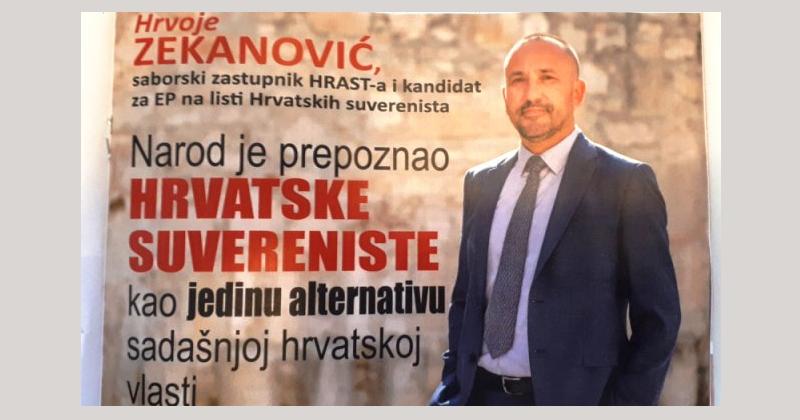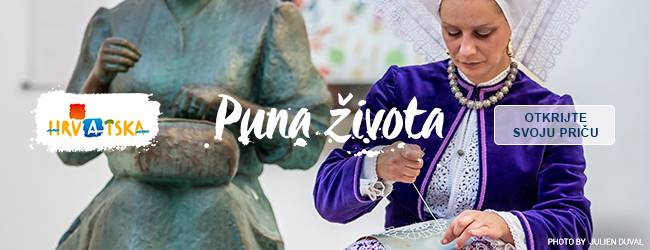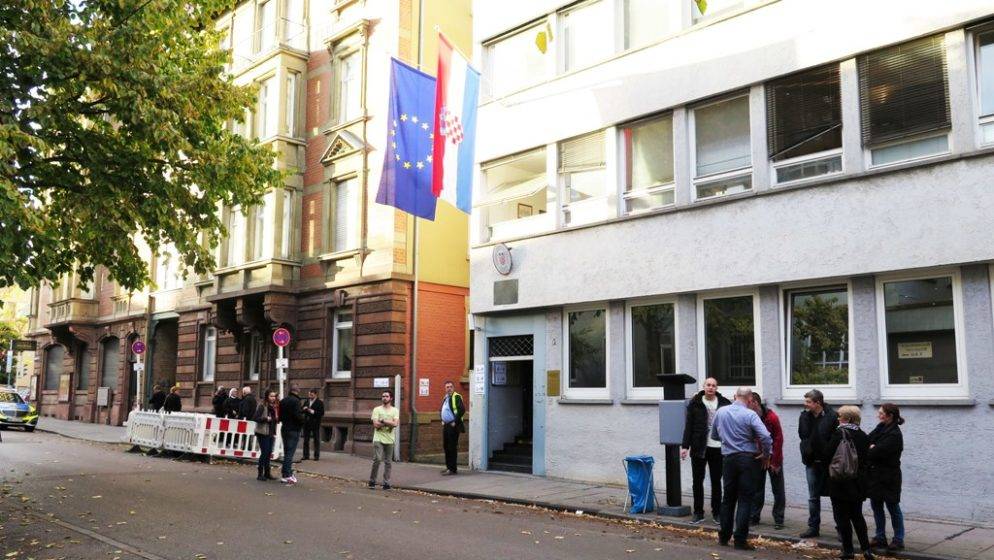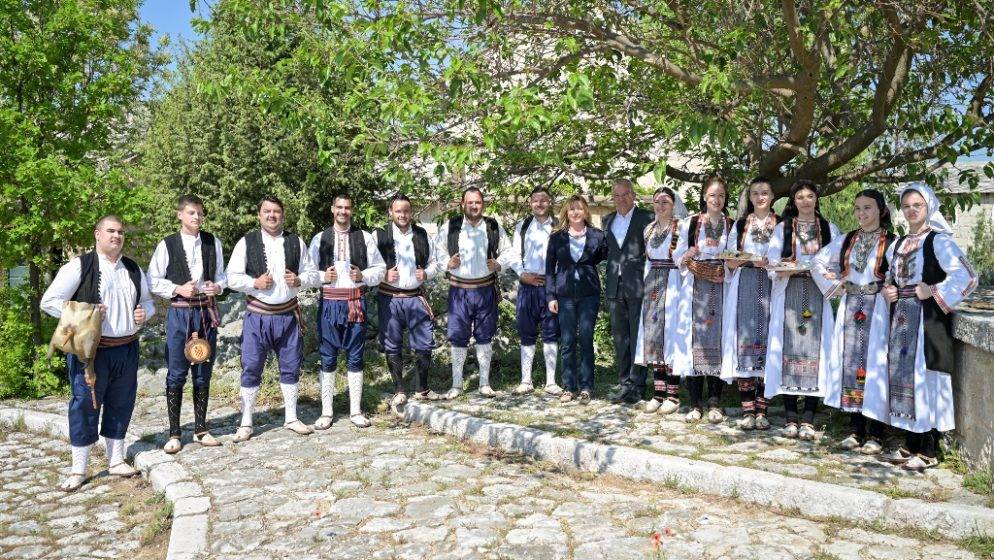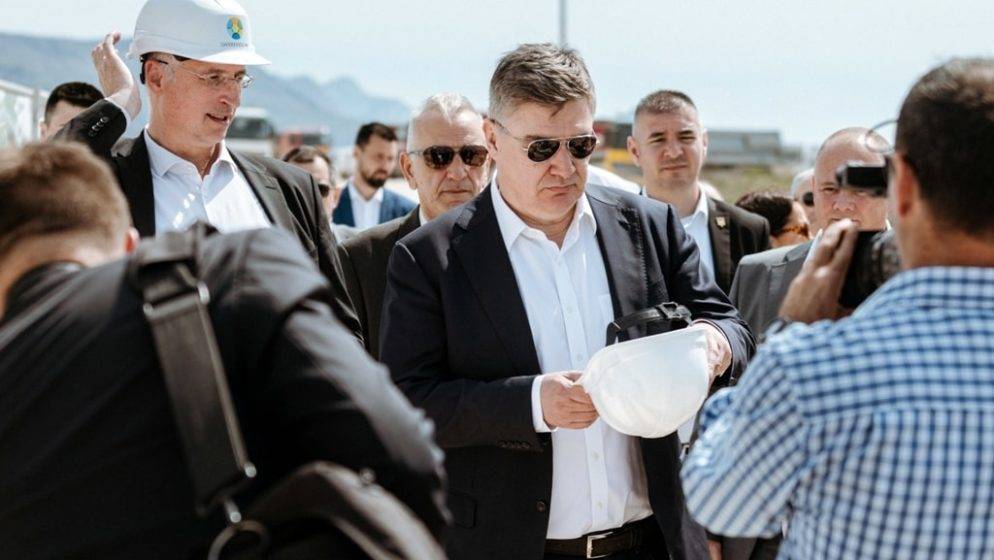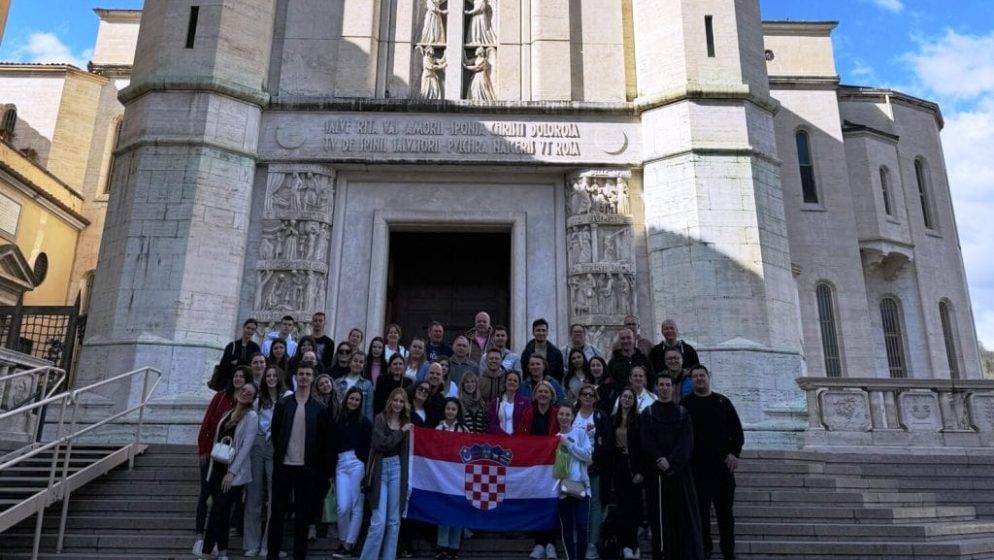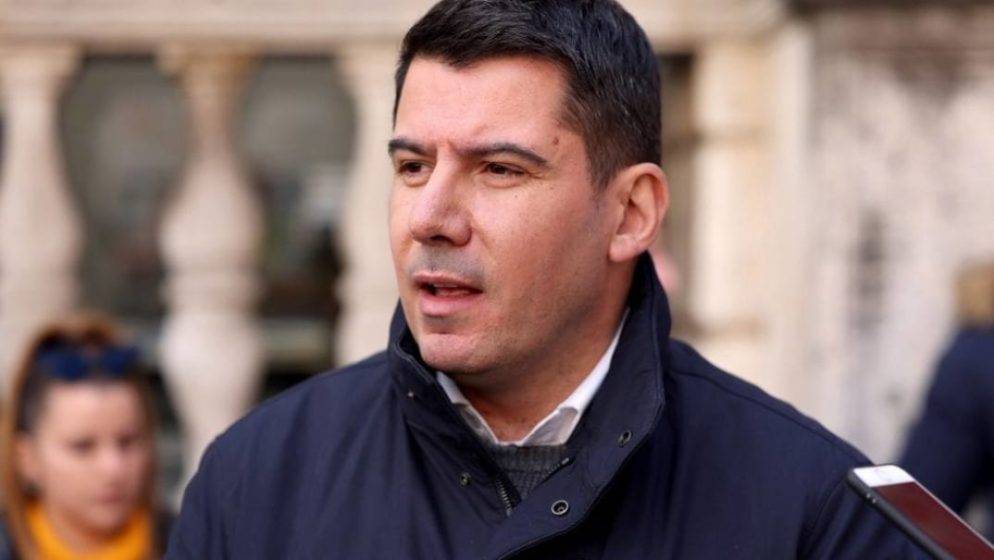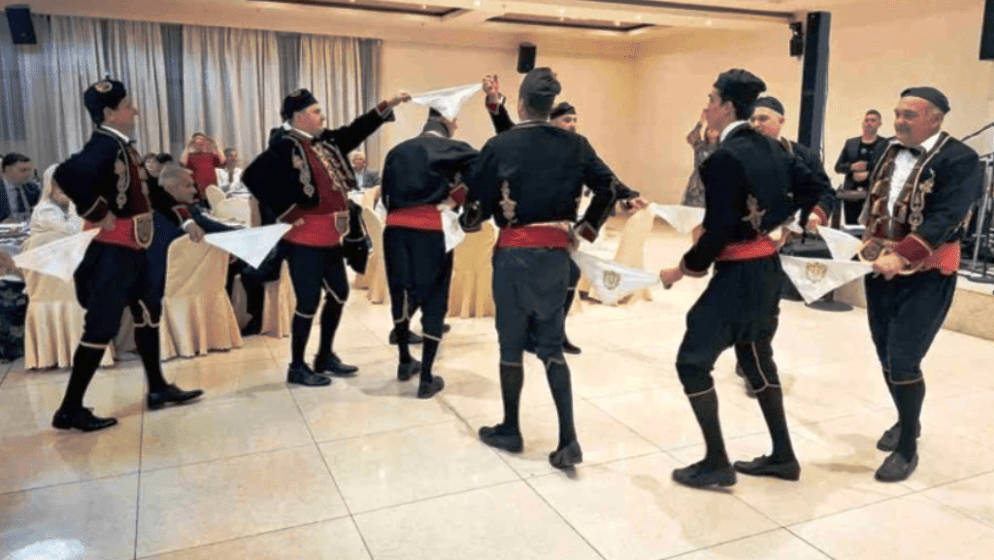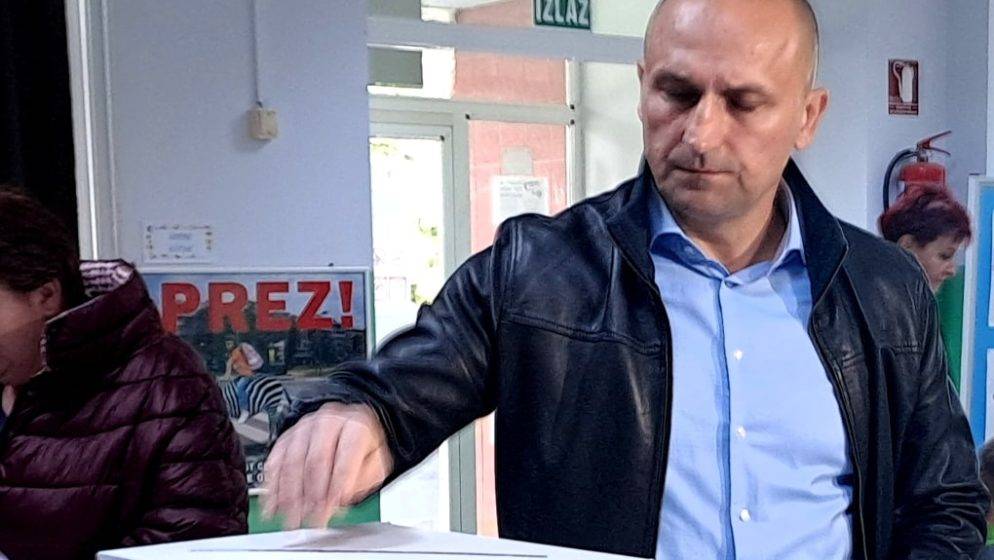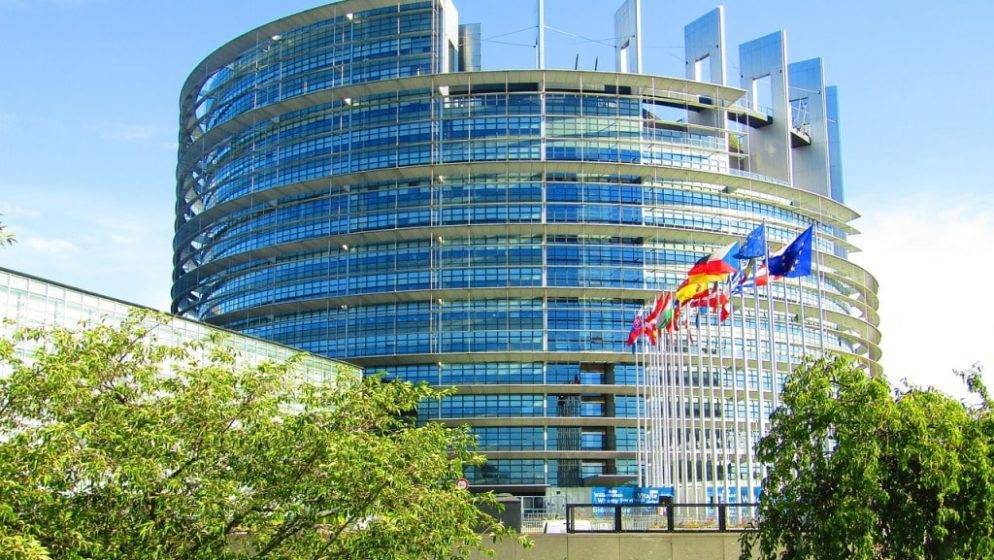Author: Ina Vukic/Sydney
With conservative political orientation Hrvoje Zekanovic was elected into the Croatian Parliament in 2016. Prior to that, having graduated from the University of Zagreb, he worked for some ten years as a Geography professor in the coastal town of Sibenik. His political and parliamentary career has so far marked a rather high public profile in Croatia with his strong stance against gender ideology and the Marrakech Agreement as well as being a central personality in the so-called Croatian Sovereignists, a political group whose agenda included coalition, union and togetherness of a number of small political parties in Croatia and publicly involved political activists with view to steer towards a united front within the ring-wing political landscape for a better Croatian future.
With this political movement of united politicians Croatian Sovereignists had in May 2019 won a seat in the European Parliament. The movement now (November 2019) transformed into a political party ‘Croatian Sovereignists’ with Hrvoje Zekanovic as its president.
You are currently on a visit to Australia. What impressed you the most in being among Croats living in Australia?
I am most impressed by the fact that despite being thousands of kilometers away, almost at the other end of the world and for many decades, the Croatian community has retained and continues to live and has not forgotten its identity, heritage and culture.
Have you come across some concerns, as well as desires, of Australian Croatians with regards to the relationship between Croatia and its Diaspora? If yes, can you please briefly tell us about them?
Regretfully, I have. Many Croats are saddened not only by the current political situation in Croatia but also by all the politics during past decades of Croatia towards Croatian emigration and emigrants. That is, when the Homeland needed its Croatian emigrants living abroad those Croatians helped their Homeland without delay. However, the negligence shown by the Croatian political establishment towards Croatian émigrés is perhaps best represented by the fact that there are only a few places where Croats living on this continent can vote during elections.
I agree with the émigrés who say that they re second-grade citizens; while in Croatia there are voting places, polling booths, for just a few dozen of voters and in Australia there are cities with a million or millions of people, among them tens of thousands of Croats, have not a single polling booth for Croatian elections where citizens can vote. Also, I have come across much bitterness because of the complicated legal process or regulations during attempts from the diaspora to invest in Croatia. That is, a large number of attempts by diaspora Croats to invest in Croatia have ended with abandonment due to corruption, nepotism and, I dare say, due to criminal activities.
Recently, the ‘Croatian Sovereignists’ political party was founded in Zagreb and you are a member of that party. What has inspired you, personally, for the establishment of that political party?
Our slogan was that there is no alternative to togetherness. Of course, I refer to togetherness of all sovereignists and all patriots. Croatian sovereignists gathered together on exactly those principles. We are talking here about the joining together of a number of political parties such as Hrast, Croatian Conservative party, the Initiative or the Istanbul Convention, Croatian Bedem and about many distinguished individuals including General Zeljko Sacic, Kristina Pavlovic, Pero Kovacevic and Timislav Sunic. The togetherness has had the outcome of the third-best results in last European Parliament elections and, hence, due to public survey inclusions and ballot papers the logical step was to form the ‘Croatian Sovereignists’ political party. Of course, the platform continues to exist and many individuals, organisations and parties are coming on board.
What goals has your party set itself in relation to the Croatian diaspora?
The key goal is to enable the Croatian diaspora to vote equally as Croatians living in Croatia vote. The best way to achieve that is postalo or electronic voting. Also, what we plan to propose is an Electoral law where Croatia would be one single electorate because we consider that the over three million Croats who live outside of Croatia across the world can only vote for three representatives in the parliament while Croats who live in Croatia have the right to vote for 148 representatives. Only in this way can the treatment of Croatian diaspora as second-class citizens be prevented. Also, it is necessary to facilitate investment in the Homeland by emigrants. That is, corruption needs to be stopped and investments made easier.
Who are the carriers of leadership in ‘Croatian Sovereignists’?
The most important body of the party is the party’s Advisory Council , which for now has some twenty people who are prominent in the public political life. We do not want to brand any single person and with that reduce the togtherness which we have shown. I was elected as president at the party’s assembly meeting but we do not want to accentuate that because we consider that all the members of the Advisory Council and the Presidency contribute to the growth and strength of the Sovereingists.
So, how do you explain the fact that Ruza Tomasic has often been shown as a key or central personality for the Sovereignists both during the European Parliament elections and even these days?
Owing to the togetherness and, of course, to Ruza Tomasic as an excellent candidate, the Sovereignists won a mandate in the European Parliament. Many who who are afraid of us and who oppose us have attempted to belittle our strength want to ascribe our strength to only one person. Nevertheless, the Sovereignists’ brand is stronger than any one person and our opposition is well aware of that and, hence, will continue attempting to bring us down through personalisation of the story.
The concept of sovereignty is defined in dictionaries, what does sovereignism mean in the frame of you party? What stands behind the word and the concept of ‘Sovereignists’ as far as your party is concerned and why exactly did you choose that name?
There was a time when politics were categorised as either right or left wing and today it is divided into globalism or sovereignism. To clarify myself, it is divided between those who want a global amorphous society without an identity and us who want our heritage, our tradition and our culture to be valorised in appropriate ways. Croatia is a sovereign country on paper but in today’s globalised world Croatia has renounced much of its sovereignty to its own detriment. I think that the interest and the political goal of every Croatian politician must primarily be the interest of the Croatian state, the Croatian people, and not some super-imposed creation regardless of what it is called. Brussels, Washington … are not the capital cities for the Croatian people – Zagreb is.
What are the main goals or program points on which your party intends to work?
It’s difficult to lay out the whole political and economic program in only a few lines but that in which we are different from other political options is that we advocated without a compromise for for a society with justice and a society with values.
Are there any differences in the Croatian Sovereignists’ program to the programs which Hrast and Croatian Conservatives parties had before they joined forces to make up your party?
No, there are no differences and with that we accentuate sovereignism as a political commitment.
If you were in a situation where you would need to extract one single most important goal in achieving full and optimal democracy in Croatia what would that goal be?
I would prefer to choose two things and they are: demographic revival and fight against corruption and nepotism. It’s difficult for me to say which one is more important because without one or the other there is no prosperity.
Thank you for the interview. Do you have a message you would like to give for the Croats living outside of Croatia?
I must admit that I admire all those who have, in this case of Australia, at the other side of the world, managed to create for themselves and their families a solid existence and prosperity. I do not consider that it is essential, particularly for the older emigration group, to return to Croatia but we must set ourselves the priority of strong bonding of the entire Croatian corpus wherever it happens to live. In that way we can have a strong nation and a strong state in these seemingly, at first glance, peaceful but exceptionally turbulent times.
Datum objave: 23.11.2019.



